Vegan Globetrotter is supported by our audience. When you purchase through one of our links, we may earn a small affiliate commission. As an Amazon Associate I earn from qualifying purchases. Your cost is not affected.
==================
When you think of bean sprouts, what comes to mind? Are they the crisp, fresh addition to your stir-fry or a vibrant topping for your salad? But can bean sprouts be eaten raw? If you’re curious whether these little green sprouts are safe, nutritious, and tasty raw food options, you’re in the right place. In this article, we’ll dive into the surprising benefits of eating bean sprouts raw, explore the safety tips you need to know, and discover delicious ways to incorporate them into your meals. Get ready to see bean sprouts in a new light and discover if this crunchy vegetable deserves a spot on your raw food menu!
Is It Safe to Eat Bean Sprouts Raw? Everything You Need to Know
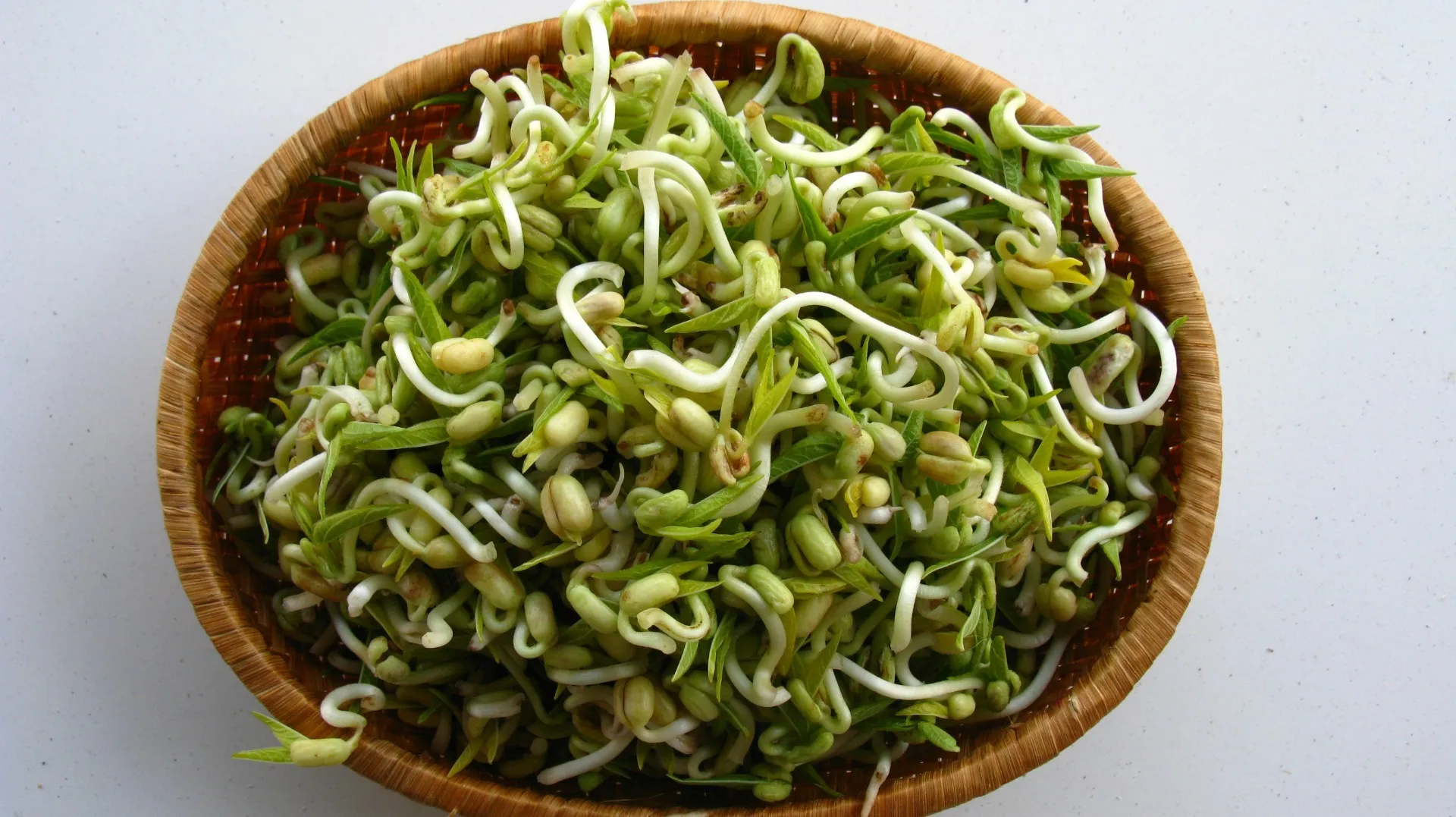
Bean sprouts, particularly mung bean sprouts, are popular in various cuisines. Their crunchy texture and mild flavor make them versatile for salads, stir-fries, and sandwiches. However, a key question is whether raw and mung bean sprouts can be consumed safely. This article delves into sprouts, exploring their nutritional benefits, potential risks, and safe consumption practices. Understanding these aspects is crucial for enjoying sprouts’ goodness without compromising food safety.
Key Highlights
- Bean sprouts can be eaten raw, but there are risks of bacterial contamination due to the warm and moist conditions in which they are grown.
- Children, older adults, pregnant people, and those with compromised immune systems should be cautious when consuming raw bean sprouts.
- It is important to follow safe consumption practices, such as proper rinsing and cooking, to reduce the risk of foodborne illnesses.
- Bean sprouts are highly nutritious and provide numerous health benefits, including improved digestive health and a strengthened immune system.
- To store and preserve bean sprouts, they should be kept in the refrigerator and consumed within a few days.
Can Bean Sprouts Be Eaten Raw: Understanding Bean Sprouts
Bean sprouts are germinated seeds, commonly from mung beans or other legumes. These sprouts thrive in warm, moist conditions ideal for bacterial growth, increasing the risk of contamination. Notably, alfalfa, mung bean, and radish sprouts have faced recalls due to foodborne illness concerns.
Understanding the growth process is crucial, as sprouts are vulnerable to harmful bacteria like salmonella and listeria. Despite their risks, bean sprouts offer significant health benefits and are rich in nutrients like vitamin C, antioxidants, and folate.
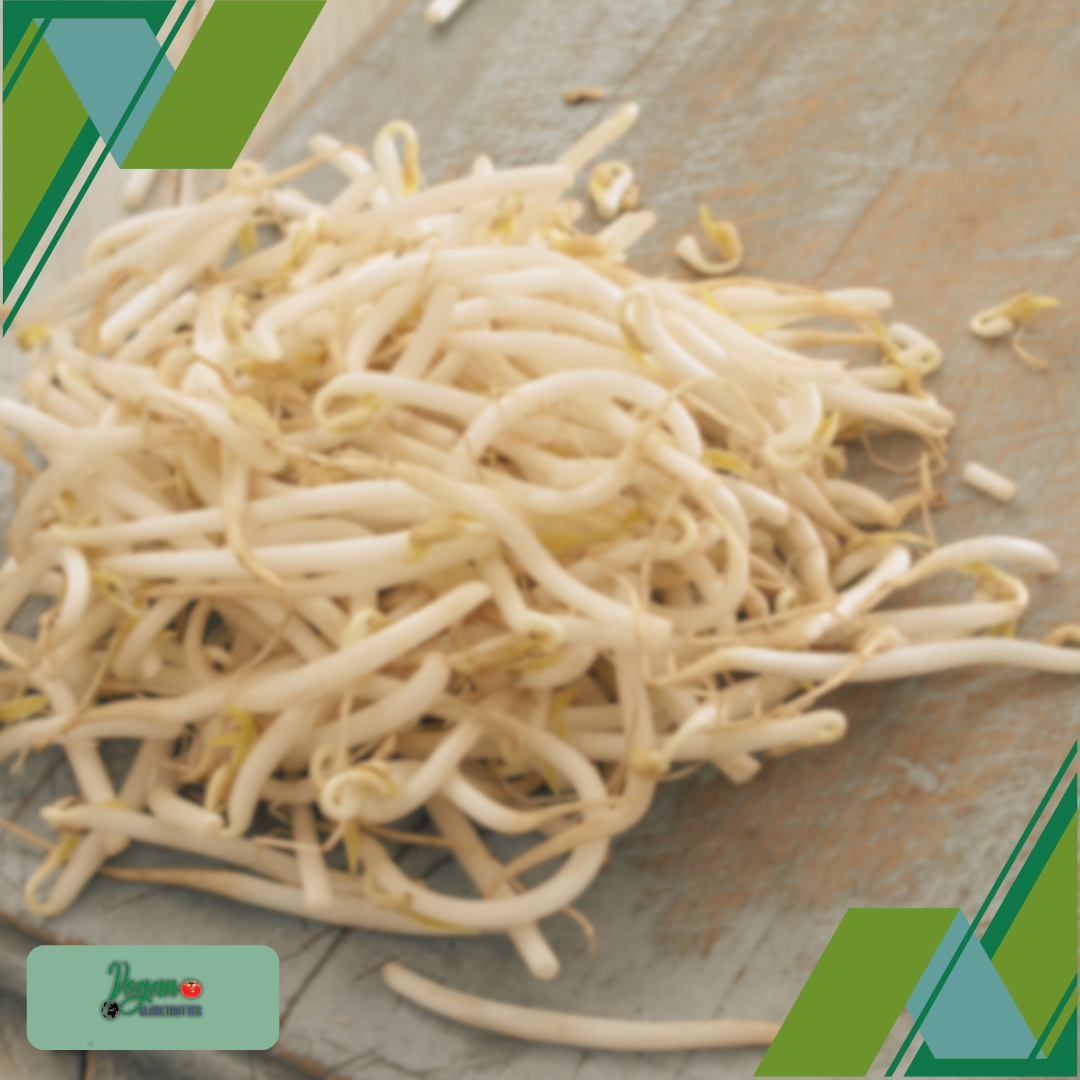
The Basics of Bean Sprouts: What Are They?
Bean sprouts are young, edible plants harvested just after germination. Commonly found in Asian cuisine, they offer a crunchy texture and mild flavor. These sprouts are rich in nutrients like vitamin C and fiber, making them a healthy addition to salads and stir-fries.
Nutritional Profile: Why Bean Sprouts Are Good for You
Bean sprouts are a powerhouse of nutrition, rich in vitamins and antioxidants. They offer vital nutrients like Vitamin C and folate, promoting overall health. These young plants, particularly mung bean sprouts, are low in calories and crunch, making them an excellent addition to any diet. Incorporating bean sprouts can boost your antioxidant intake, supporting your body’s defense against oxidative stress and promoting a healthy lifestyle.
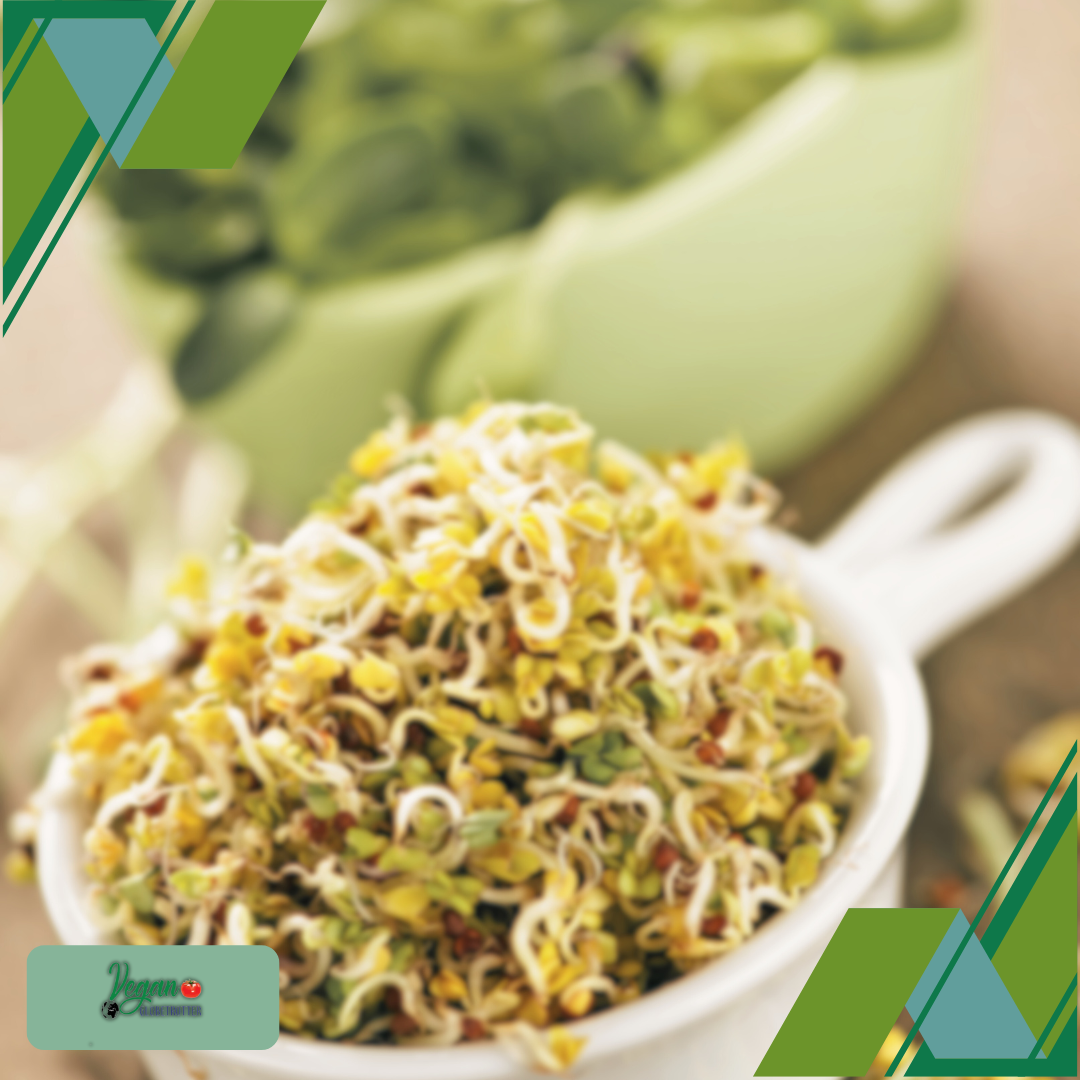
Did You Know?
Bean sprouts can be safely grown at home with proper care and attention to food safety. It is important to ensure that the growing conditions are clean and hygienic. Use clean seeds, sterilized equipment, and safe irrigation water to minimize the risk of bacterial contamination. Proper rinsing and cooking of homegrown sprouts is also recommended.
Health Benefits of Bean Sprouts
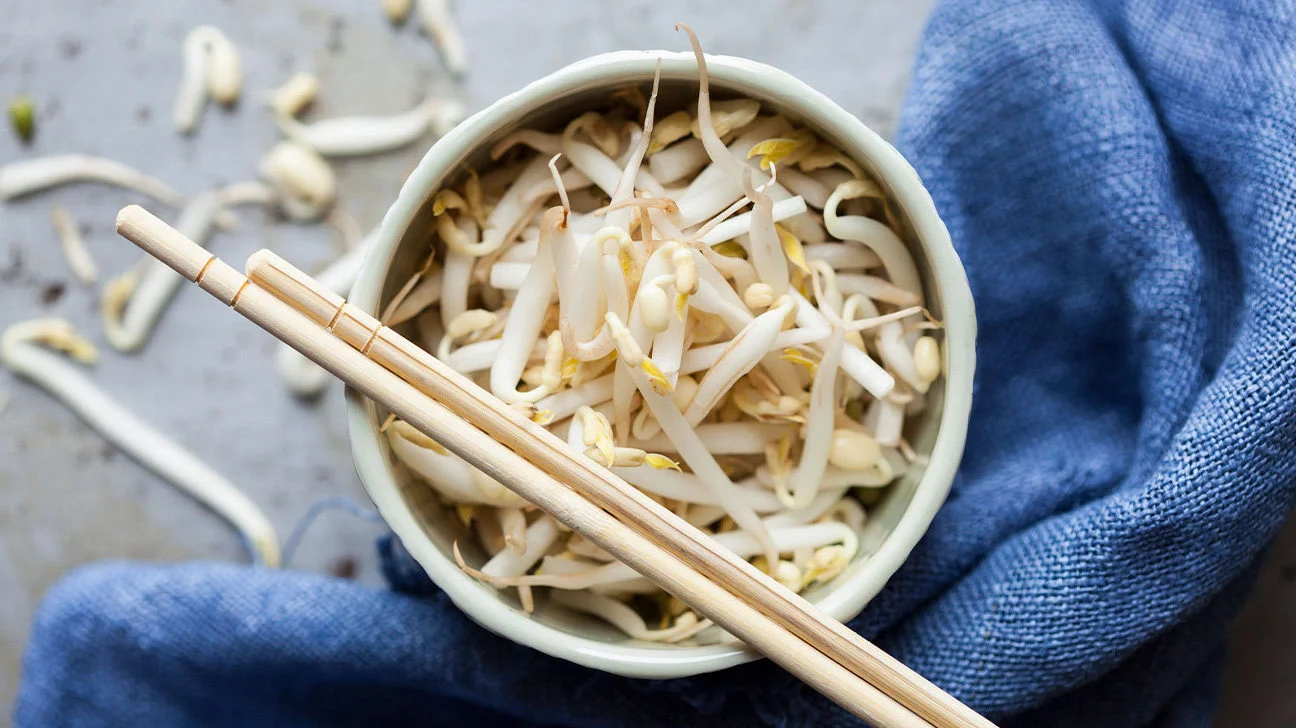
Bean sprouts offer a multitude of health benefits. You might be wondering, “Can bean sprouts be eaten raw?” The answer is yes! These crunchy sprouts are rich in nutrients like vitamin C, folate, and antioxidants, which support overall well-being. Eating them raw preserves these nutrients and provides a fresh, healthy addition to your meals. Raw bean sprouts aid digestion, boost the immune system and are a valuable part of a balanced diet. Including bean sprouts in your meals, whether cooked or raw, can improve health outcomes and provide essential nutrients for a healthy lifestyle.
Boosting Digestive Health with Bean Sprouts
Bean sprouts offer a natural way to enhance digestive health. These raw sprouts are rich in enzymes, aiding digestion and nutrient absorption. The live enzymes in mung bean sprouts help break down food more efficiently, promoting a healthy digestive system.
Additionally, the fiber content in bean sprouts supports regular bowel movements, preventing constipation. You can boost your digestive health and overall well-being by incorporating bean sprouts into your diet.
Enhancing Immune System Through Nutrient-Rich Sprouts
Bean sprouts, rich in nutrients like vitamin C and antioxidants, can boost your immune system. These sprouts, from mung beans or alfalfa, provide folate and manganese essential for immune function.
Incorporating these powerhouse sprouts into your diet regularly can enhance your body’s defense mechanisms. By promoting overall health through their beneficial properties, sprouts contribute to a stronger immune response against harmful bacteria and illness.
Here’s an additional video about the benefits of raw bean sprouts.
By: WaysAndHow
Can Bean Sprouts Be Eaten Raw: The Risks of Eating Raw Bean Sprouts
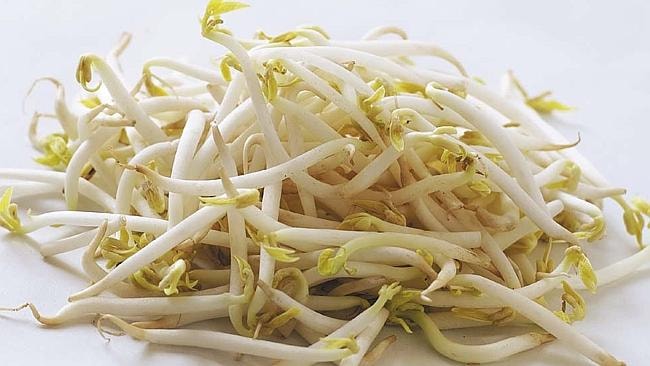
When asking if bean sprouts can be eaten raw, it’s important to consider that they carry a risk of bacterial contamination, notably due to their growing conditions in moist environments that are ideal for bacteria. Cases of food poisoning linked to alfalfa sprouts have been reported, with concerns about salmonella and listeria. Those at higher risk, like pregnant women, should be cautious, as sprouts may harbor harmful bacteria. It’s essential to identify safe bean sprouts through inspection and adhere to food safety guidelines to prevent foodborne illnesses.
Bacterial Contamination Concerns
Concerns regarding bacterial contamination in raw bean sprouts primarily stem from the warm and moist conditions ideal for bacterial growth during sprouting. The potential presence of harmful bacteria like Salmonella and Listeria poses a risk of foodborne illness, especially in vulnerable groups such as pregnant women and individuals with weakened immune systems. To address the question of Can bean sprouts be eaten raw it is essential to consider these risks. To mitigate them, thorough washing of sprouts, proper storage following food standards, and avoiding consumption if they exhibit a slimy appearance are recommended practices.
How to Identify Safe Bean Sprouts
Look for crisp bean sprouts with no slimy appearance. Opt for fresh-smelling sprouts, avoiding any off odors. Check for vibrant colors and avoid any discoloration or dark spots. Ensure the sprouts are refrigerated or displayed in a chilled section. Buy from reputable sources that follow food safety regulations. Rinse the bean sprouts thoroughly before consumption to reduce any potential contaminants. Prioritize organic or locally sourced sprouts for enhanced safety precautions.
Can Bean Sprouts Be Eaten Raw: Safe Consumption Practices
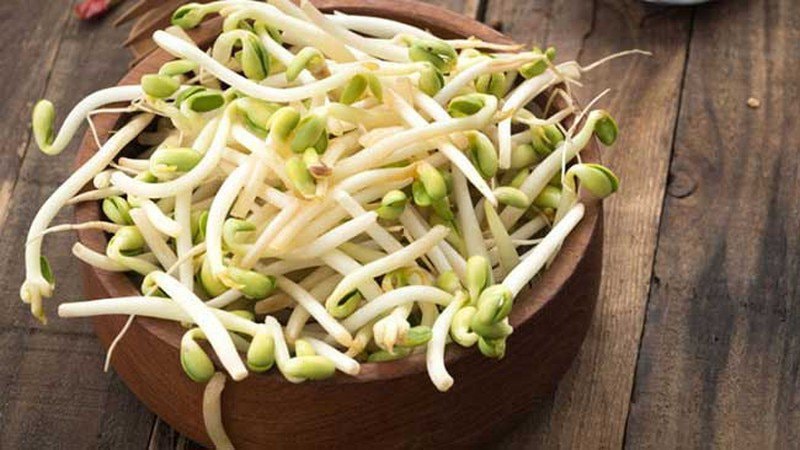
Always rinse them thoroughly before eating to ensure safe consumption of bean sprouts. When considering Can Bean Sprouts Be Eaten Raw, purchasing fresh sprouts and storing them in the refrigerator to prevent bacterial growth is advisable. Avoid consuming sprouts that appear slimy or have an off smell.
Additionally, pregnant women, young children, the elderly, and individuals with compromised immune systems should consider cooking bean sprouts to eliminate potential risks of foodborne illnesses. Following these practices can help mitigate the chances of food poisoning.
Steps to Clean and Prepare Bean Sprouts for Safe Eating
To ensure safe consumption of raw bean sprouts, start by rinsing them thoroughly under cool running water. Next, remove any discolored or slimy sprouts. Use a clean bowl and fill it with water, then allow the sprouts to soak for a few minutes to clean them further.
After that, drain the water, and pat dry the bean sprouts with a clean paper towel before adding them to your dishes. Properly cleaned bean sprouts can be a delicious and safe meal addition.
Alternatives to Eating Bean Sprouts Raw
Instead of consuming bean sprouts raw, consider adding them to stir-fries or salads for a flavorful twist. You can also lightly sauté them with other veggies or incorporate them into soups and stews to enhance the overall taste and texture.
By cooking bean sprouts, you can decrease the risk of bacterial contamination while still enjoying their crunch and nutritional benefits. Experiment with different cooking methods to discover the best way to enjoy these versatile sprouts.
Can Bean Sprouts Be Eaten Raw: Storing and Preserving Bean Sprouts
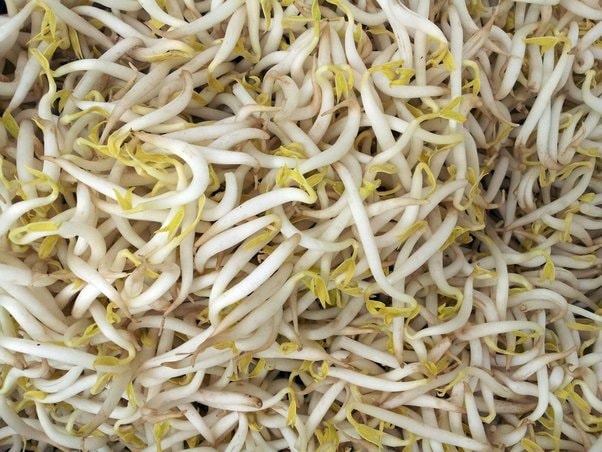
Proper storing and preserving techniques are essential to ensure the freshness and quality of bean sprouts.
Best Practices for Storing Bean Sprouts
To maximize the freshness and shelf life of bean sprouts, following some best practices for storing them is important. After purchasing bean sprouts, transfer them to a clean, airtight container or resealable bag. Place the container or bag in the refrigerator, ideally in the vegetable drawer or a lower shelf. This will help maintain a consistent temperature and minimize exposure to other foods.
Bean sprouts should be consumed within a few days for optimal freshness and taste. Before using it, it’s a good idea to check the sprouts for any signs of spoilage, such as a slimy appearance or off smell. If you notice any of these signs, it’s best to discard the sprouts to avoid the risk of foodborne illness.
Tips on Freezing and Extending Shelf Life
If you have a surplus of bean sprouts or want to extend their shelf life, freezing them is an option. Freezing bean sprouts can help preserve their freshness and ensure you have them on hand whenever needed. Here are some tips on freezing bean sprouts:
Here’s an additional video about eating raw bean sprouts.
By: Howcast
Navigating the Safety and Benefits of Eating Raw Bean Sprouts
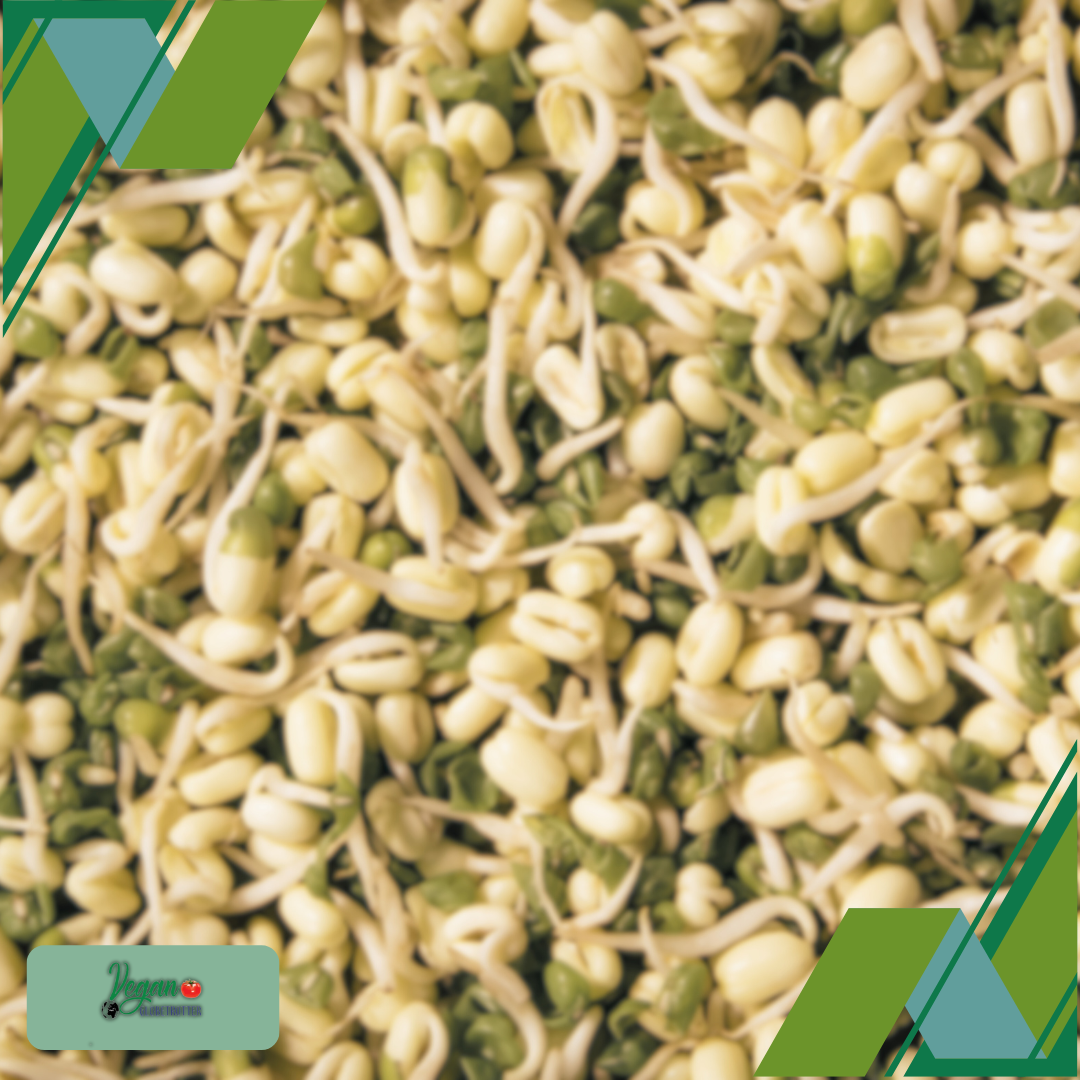
While bean sprouts can be eaten raw, it’s essential to exercise caution due to the potential risks of bacterial contamination. The nutritional benefits of raw bean sprouts are numerous, offering a rich source of vitamins and antioxidants that can boost digestive health and strengthen the immune system. However, for vulnerable groups such as children, older adults, pregnant individuals, and those with compromised immune systems, it’s advisable to either avoid raw sprouts or ensure they are properly rinsed and stored. By following safe consumption practices and considering alternatives like lightly cooking the sprouts, you can enjoy the health benefits of bean sprouts while minimizing the risk of foodborne illness. Whether raw or cooked, bean sprouts can be a delicious and nutritious addition to your diet.
Frequently Asked Questions
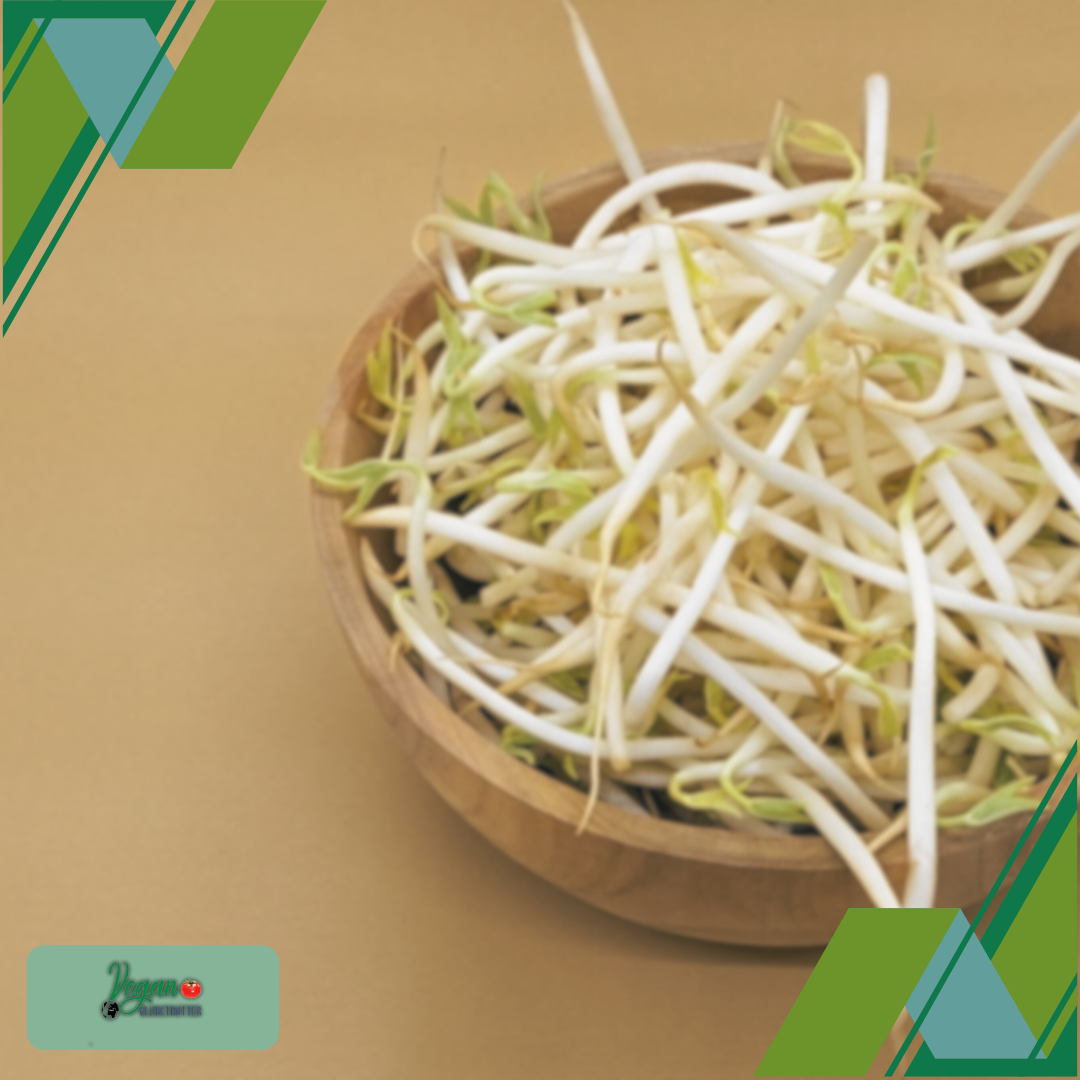
Can Eating Raw Bean Sprouts Lead to Health Issues?
Raw bean sprouts have a higher risk of bacterial contamination than other vegetables due to the warm and moist conditions in which they are typically grown. This can lead to foodborne illnesses caused by harmful bacteria like E. coli, salmonella, staphylococcus, and listeria. It is important to thoroughly cook bean sprouts or avoid eating them raw, especially for vulnerable groups such as children, older adults, pregnant individuals, and those with weakened immune systems.
How Can I Ensure My Bean Sprouts Are Safe to Eat?
To ensure the safety of bean sprouts, follow these food safety practices:
- Rinse bean sprouts thoroughly before use.
- However, rinsing may not completely remove harmful bacteria.
- It is recommended to cook bean sprouts thoroughly to minimize the risk of foodborne illness caused by bacteria.
Are There Any Benefits to Eating Bean Sprouts Raw Over Cooked?
While raw bean sprouts are safe to eat, cooking them thoroughly can help reduce the risk of bacterial contamination. However, both raw and cooked bean sprouts offer nutritional benefits. They are rich in protein, antioxidants, fiber, vitamins (such as thiamin and folate), and minerals (including copper, iron, manganese, and phosphorus). Whether raw or cooked, incorporating bean sprouts into your diet can provide these health benefits.
Find Us on Social Media
Facebook: VeganGlobetrotter Join us on our Facebook page, VeganGlobetrotter, where we share mouthwatering plant-based recipes and tips to inspire your vegan lifestyle.
Instagram: _veganglobetrotter Follow us on Instagram at _veganglobetrotter to embark on a visual journey of delectable vegan dishes.
Pinterest: theveganglobetrotter Dive into the world of plant-based goodness and wellness with our Pinterest account, theveganglobetrotter.
Twitter: VeganGlobetrot Stay up-to-date with the latest vegan trends, insightful articles, and exciting updates by following us on Twitter at VeganGlobetrot.

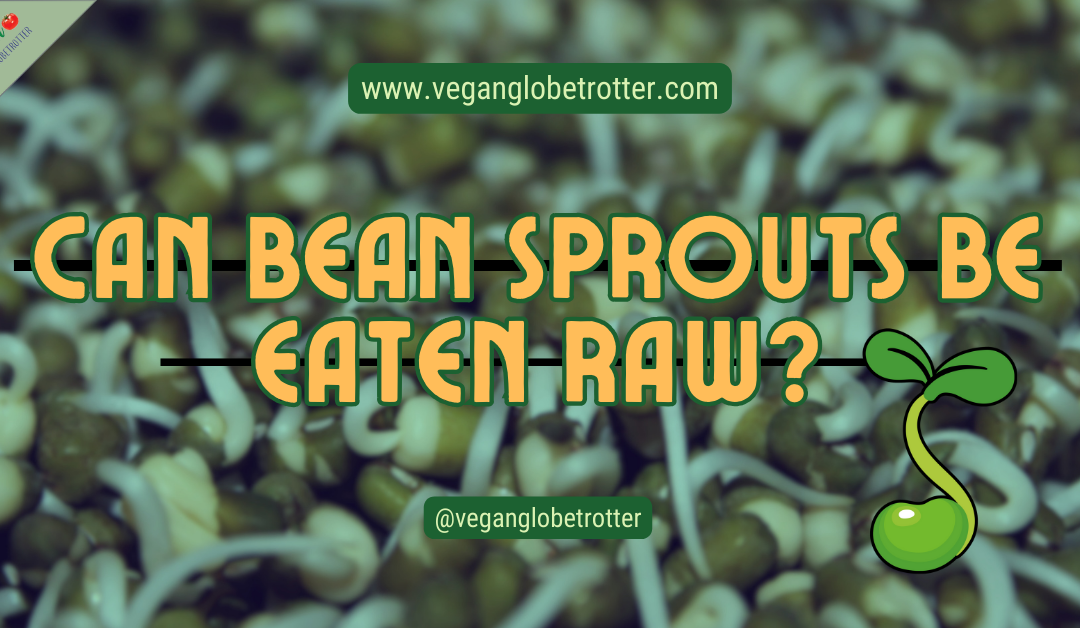

Don't miss out
when new recipes and information are added!
Join our newsletter for free recipes,
healthy living inspiration, and special offers
You have Successfully Subscribed!